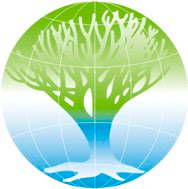On April 16, 2010, the nationalist, right-wing Israeli movement of “Im Tirtzu - The Second Zionist Revolution” released a report accusing at least twelve Israeli human rights organisations of support for or involvement in the indictment of Israeli officials for serious violations of international law in courts overseas, acting in accordance with the principle of universal jurisdiction. After releasing the report, Im Tirzu launched a billboard campaign, timed to coincide with Memorial Day on April 19 (Yom Hazikaron, ‘Israeli Fallen Soldiers and Victims of Terrorism Day’), and Israeli Independence Day, on April 20. This campaign, which involved defamatory slogans, aimed at de-legitimising the activities of human rights organisations supported by the New Israel Fund, including Adalah, PCATI, HaMoked, B’Tselem, ACRI, Bimkom, Gisha, Physicians for Human Rights-Israel, Yesh Din, and Rabbis for Human Rights. Im Tirtzu previously launched a campaign against human rights organisations in February 2010, which focused on their provision of information to the United Nations (UN) Independent Fact-Finding Mission on the Gaza Conflict led by former Justice Richard Goldstone.
Our organisations strongly denounce this new move which further undermines the safety of human rights defenders working to uphold the rule of law and combat impunity. Our organisations recall: that the fight against impunity constitutes an integral part of legitimate human rights activity, as recognised by international human rights instruments; that the activities conducted by the above-mentioned Israeli organisations are transparent; that they operate within the framework of the rule of law; that their mission is to represent victims of human rights violations; that their action is apolitical and that the only reason for which some of them resort to extra-national jurisdictions is that the Israeli jurisdictions has proven unwilling to pursue justice on these cases. Universal jurisdiction is a natural extension of the Nuremberg principles and Israel, of all countries, should not take actions which go against the spirit of Nuremberg.
We urge the Israeli authorities to take measures to ensure the protection of human rights defenders and organisations as provided in the Declaration on Human Rights Defenders adopted by the UN General Assembly on December 9, 1998, which provides that “the State shall take all necessary measures to ensure the protection by the competent authorities of everyone, individually or in association with others, against any violence, threats, retaliation, de facto or de jure adverse discrimination, pressure or any other arbitrary action as a consequence of his or her legitimate exercise of the rights referred to in the present Declaration” and the International Covenant on Civil and Political Rights, ratified by the State of Israel.
We further urge the Members of the Knesset to refrain passing a new law that would hamper the activities of civil society organisations in contradiction with democratic values and violate international human rights standards binding upon the State of Israel, in particular the rights to freedom of association, information and expression and victims’ legitimate rights to an effective remedy.
The Euro-Mediterranean Human Rights Network (EMHRN)
The Observatory for the Protection of Human Rights Defenders, a joint programme of the International Federation for Human Rights (FIDH) and the World Organisation Against Torture (OMCT)
The Center for Constitutional Rights (CCR)
Redress
An unofficial translation in English of the Law is available at: http://www.adalah.org/newsletter/eng/apr10/bill.pdf


